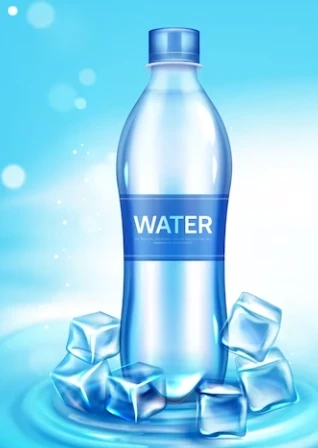Several things could be improved about the safety of regular drinking water. There are a lot of myths and misconceptions floating around about how hard water causes all sorts of health problems, and some of them have some basis. It's a frequent misconception that drinking hard water can lead to kidney stones.
Can Hard Water Cause Kidney Stones?
Many think the excess calcium in hard water causes kidney stones by forming insoluble crystals in the organs that cannot filter them out. It makes sense, but can we trust it to be accurate? Answering this question involves delving further into the science behind hard water and how the human body responds to it.
What is hard water?
Hard water is defined as water when the dissolved calcium and magnesium concentration is higher than the maximum safe values. Grains per gallon (GPG) is a standard unit of measurement for this kind of contamination. Because most water originates from groundwater, calcium, and magnesium are often found in municipal and well water supplies. Groundwater is called groundwater that seeps into the earth and collects below a specific point. Groundwater in most of the United States gets its calcium and magnesium from limestone because of its abundance. Hard water minerals are often only removed from municipal water sources or wells that draw from groundwater if a water softener is installed.
Hard water contains inorganic calcium and magnesium that initially came from the earth and are consumed by those who use it. Many have concluded that calcium deposits in the body from drinking hard water cause kidney stones. Kidney stones would be far more prevalent and widespread if this were the case.
Better Hydration Due to Better Water
If staying hydrated is the key to warding against kidney stone issues, the water you drink couldn't be more critical. Sugary and artificially sweetened beverages, such as sodas, sports, energy, and other soft drinks, have been widely used for decades despite their link to kidney stone development. The recent surge in bottled water consumption demonstrates that people do indeed drink water as long as they believe it to be safe. However, bottled water is mostly tap water sealed in plastic, and using single-use plastic bottles is an environmental problem. If you want a healthy alternative to bottled water without the trouble of transporting it, why not just enhance the quality of the water where you live?
While water softeners may help reduce certain impurities in drinking water, they are often just the first stage in a more comprehensive water treatment system. Filters designed to remove contaminants like chlorine, nitrates, arsenic, and lead from drinking water, such as carbon cartridge filters and reverse osmosis systems, may get clogged or destroyed when exposed to hard water.


